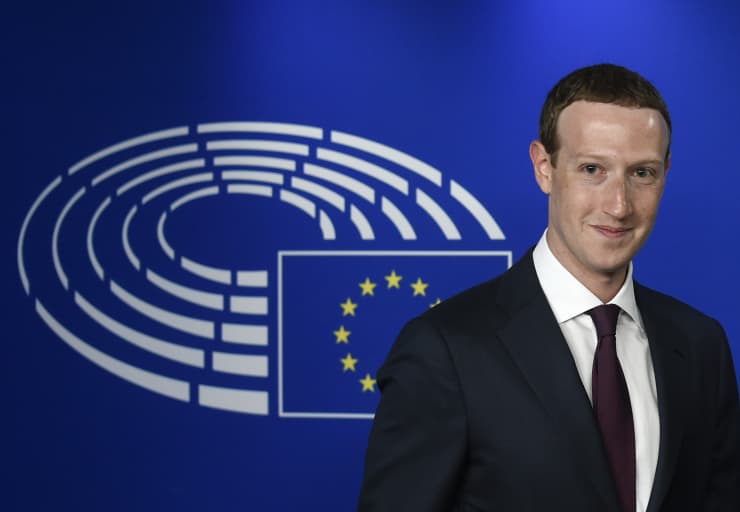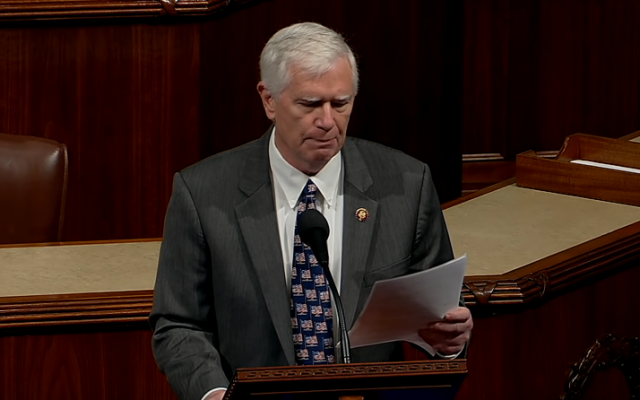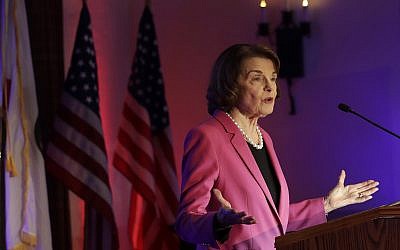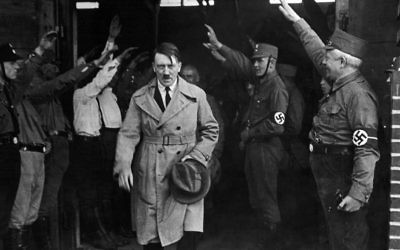Facebook tightens political ad rules in EU ahead of May elections Friday March 29th, 2019 at 4:49 AM
- Get link
- X
- Other Apps
Key Points
- Facebook is expanding on measures it put in place in countries including the U.K., U.S. and India.
- Political advertisers will need to undergo checks and ads will be labeled with disclosures on who paid for them.
- It’s also introducing Ads Library, a tool that lets users finds information about an ad stored on a public database.

Facebook CEO Mark Zuckerberg arrives at the European Parliament on May 22, 2018.
John Thys | AFP | Getty Images
Facebook implemented restrictions on its political advertising rules in the European Union Friday, in an effort to prevent abuse and interference in the run up to EU Parliament elections in May.
The company said in a blog post that it would expand on measures it put in place last year in countries including the U.K., U.S. and India. These measures mean political advertisers need to undergo checks to prove they live in the country they’re targeting.
Ads will also be labeled with disclosures identifying who paid for them and their contact details too, provided they’re a business and not an individual. Ads that haven’t been registered by mid-April will be blocked.
A new feature the company is introducing is called Ads Library, an improvement on its archive tool, that lets users search political ads on a public database to find information on the number of times an ad was viewed and demographic data about who saw it. The ads are to be stored on Facebook’s library for seven years.
“These changes will not prevent abuse entirely,” Richard Allan, Facebook’s vice president of global policy solutions, said. “We’re up against smart, creative and well-funded adversaries who change their tactics as we spot abuse.”
“But we believe that they will help prevent future interference in elections on Facebook. And that is why they are so important,” he added.
The social media giant has been the subject of much scrutiny over how it handled attempts by Russia-backed trolls to masquerade as political advertisers to sway public opinion during votes like 2016 U.S. presidential election.
Voters in the bloc will go to the polls on May 23.
Read the whole story
· · · ·
JTA — An Alabama Republican congressman kicked up a political dust storm Monday when he quoted from Hitler’s 1925 book “Mein Kampf” on the House floor. Critics hated the way Mo Brooks emphatically compared present-day Democrats with members of the Nazi Party; said he seemed to misunderstand the very Hitler passage he was quoting; and that by even speaking the Nazi leader’s words in the hallowed halls of Congress he had somehow given them legitimacy.
Yes, Brooks directly compared Democrats, whom he repeatedly referred to as “socialists,” with Germany’s National Socialist German Workers Party, better known as the Nazis. Subtle it wasn’t.
And yes, he appeared to misappropriate the section he was quoting from Hitler’s manifesto cum memoir. The section in question is Hitler’s description of the “big lie,” which he describes in “Mein Kampf” as the kind of outrageous propaganda that the “masses more readily fall victim to.”
Brooks, whose point was that Democrats had spread the “big lie” of White House collusion, read the piece as if Hitler was endorsing the concept. If you read the original, you see Hitler is accusing his Jewish enemies of spreading the “big lie” of German culpability in World War I.

Rep. Mo Brooks of Alabama reads from ‘Mein Kampf’ in Congress, March 25, 2019 (YouTube screenshot)
(It’s true that Hitler’s propaganda chief, Joseph Goebbels, would later adapt the “big lie” technique in spreading the Nazi message.)
But was Brooks’ decision to quote from one of the 20th century’s most controversial and hateful political tracts unprecedented? Not really. The book has been invoked in Congress at least three dozen times, usually as a warning about the insidious appeal of fascism and a warning to those who would ignore its purveyors.
Here are five examples:
Dianne Feinstein
On May 8, 1995, Sen. Dianne Feinstein, D-Calif., in remarks commemorating the anniversary of the end of World War II in Europe, quoted the very same passage as Brooks.
“In ‘Mein Kampf,’ Hitler described what history has shown to be correct,” said Feinstein, who is Jewish. She quoted the sentence describing how the “masses” fall victim to the big lie because, as Hitler wrote, “they would not believe that others have the impudence to distort the truth so infamously.”

US Sen. Dianne Feinstein speaks at an election night event in San Francisco, Tuesday, Nov. 6, 2018. (AP Photo/Jeff Chiu)
“Millions, indeed, did fall victim to the big lie,” Feinstein explained. “Fanatical in his quest for personal power, Hitler withdrew Germany from the League of Nations. … In fact, the West’s hesitance in the face of this evil has sullied the word ‘appeasement’ for all time.”
The senator who published ‘Mein Kampf’
On Jan. 22, 2001, another California Democrat, Sen. Barbara Boxer, recalled an anecdote from the life of the late Sen. Alan Cranston of California, who had died the month before at age 86.
Boxer described Cranston’s experience as a foreign correspondent in the 1930s, when he witnessed the Nazis’ rise to power. Cranston later realized that English translations of Hitler’s book had been “sanitized to hide the truth from Americans,” Boxer recalled.
“He published his own version highlighting the ‘worst of Hitler’ and was sued by Hitler’s publisher,” she said. “While he lost the suit, a half a million copies had already been distributed, helping to educate many about the true nature of Nazism and Hitler.”
Lest we forget
Quoting “Mein Kampf” in the wake of the 9/11 attacks in 2001 was something of a trend for lawmakers.
“‘Mein Kampf’ was a statement of Hitler’s objectives, and if folks had just taken Hitler more seriously earlier, perhaps things would not have reached the point, the destructive point, it reached because he clearly said what he wanted to do today and was going to do,” said Rep. Major Owens, D-NY, in a House speech on Dec. 12, 2001.

In this Dec. 5, 1931 file photo, Adolf Hitler, leader of the National Socialists, is saluted as he leaves the party’s Munich headquarters. (AP, File)
Owens was speaking in support of the No Child Left Behind Act, which scaled up the federal role in holding schools accountable for student outcomes.
On June 16, 2006, Rep. Steve Pearce, R-NM, spoke in favor of a resolution saying the “US Will Prevail in the Global War on Terror.”
“The world chose to watch when Hitler published his blueprint for genocide in ‘Mein Kampf,’” Pearce said. “The world also chose to watch as Hitler took power on Jan. 30, 1933, directing the boycott of Jewish businesses and opening the first concentration camp just six weeks later.”
When Dr. King recommended ‘Mein Kampf’
A reference to “Mein Kampf” made it into the Congressional Record during an observance of Martin Luther King Jr.’s birthday on Jan. 16, 2007.
Rep. Dennis Kucinich, D-Ohio, read into the Record a speech that King had given on Christmas Day 1967.

Martin Luther King, March on Washington (photo credit: US Government, WIkimedia Commons)
“It’s one of the strangest things that all the great military geniuses of the world have talked about peace,” King said in the speech. “The conquerors of old who came killing in pursuit of peace, Alexander, Julius Caesar, Charlemagne and Napoleon, were akin in seeking a peaceful world order. If you will read ‘Mein Kampf’ closely enough, you will discover that Hitler contended that everything he did in Germany was for peace.”
Brooks does appear to have been alone in using “Mein Kampf” to compare his colleagues across the aisle to Nazis. In that sense, he broke new ground.
Read the whole story
· · · · · · · ·
The news that special counsel Robert Mueller “did not find that the Trump campaign, or anyone associated with it, conspired or coordinated with the Russian government” has left a lot of people in Washington with a lot of explaining to do.
Put aside the rogues’ gallery of reporters and pundits who assured us that Donald Trump had conspired with Vladimir Putin to steal the presidency. What is most insidious are those who did have access to classified intelligence and led Americans to believe that they had seen what we could not: actual evidence of Trump-Russia collusion.
Recall that in 2016, then-Senate Minority Leader Harry Reid, D-Nev., released a letter to then-FBI Director James Comey claiming the FBI had proof of Trump-Russia collusion. “In my communications with you and other top officials in the national security community, it has become clear that you possess explosive information about close ties and coordination between Donald Trump, his top advisors, and the Russian government,” Reid declared. When asked what information Reid was referring to, a spokesman said, “There have been classified briefings on this topic. That is all I can say.”
Trump has called for House Intelligence Committee Chairman Adam Schiff, D-Calif., to resign. He is absolutely correct. Schiff repeatedly said that his committee had dug up “plenty of evidence of collusion or conspiracy.” In March 2017, he said on “Meet the Press,” “I can’t go into the particulars, but there is more than circumstantial evidence now” and last May he told ABC that Trump’s Russia conspiracy is of “a size and scope probably beyond Watergate.”
Schiff is a disgrace. But he is not alone. Rep. Eric Swalwell, D-Calif., a member of the Intelligence Committee, said, “In our investigation, we saw strong evidence of collusion” and declared Trump an agent “working on behalf of the Russians.” House Judiciary Committee Chairman Jerrold Nadler, D-N.Y., claimed, “It’s clear that the campaign colluded, and there’s a lot of evidence of that.” Sen. Richard Blumenthal, D-Conn., a member of the Judiciary Committee, assured us last year that “the evidence is pretty clear that there was collusion between the Trump campaign and the Russians.” Sen. Ron Wyden, D-Ore., a member of the Intelligence Committee, said, “There is no longer a question of whether this campaign sought to collude with a hostile foreign power to subvert America’s democracy.” And recently, the committee’s vice chairman, Sen. Mark Warner, D-Va., declared that “enormous amounts of evidence” exist of collusion between Trump and Russia and that “there’s no one that could factually say there’s not plenty of evidence of collaboration or communications between Trump Organization and Russians.” Except for Mueller, of course.
These comments by people with access to intelligence were shameful. But the most sinister of all is John Brennan, who used his authority as former CIA director to suggest that Trump was a traitor and a compromised Russian asset. After Trump’s Helsinki summit, Brennan declared “he is wholly in the pocket of Putin.” When challenged by Chuck Todd on “Meet the Press,” Brennan stood by his assessment. “I called (Trump’s) behavior treasonous, which is to betray one’s trust and aid and abet the enemy, and I stand very much by that claim.”
This month, MSNBC’s Lawrence O’Donnell told Brennan this investigation was “developing while you were still on the job” and asked, “Did you see enough at that stage to believe … that that would result in indictments?” Brennan replied, “I thought at the time there was going to be individuals who were going to have issues with the Department of Justice. Yes.” In a New York Times op-ed, he wrote that “Trump’s claims of no collusion are, in a word, hogwash.” Now, Brennan feigns contrition. “I don’t know if I received bad information, but I think I suspected there was more than there actually was,” he said, adding, “I am relieved that it’s been determined there was not a criminal conspiracy with the Russian government over our election.”
Hogwash. He wanted it to be true, and he relied on his CIA credentials to convince Americans that it was. That is a violation of the public trust. Trump was right to revoke Brennan’s security clearance. He is among the worst of the worst, the Trump-Russia collusion hall of shame. We have long since passed the point where Americans expect objectivity from the press. But we should hold our elected and appointed officials handling sensitive national security issues to a higher standard.
Washington Post columnist Marc A. Thiessen is a fellow at the American Enterprise Institute and former chief speechwriter for President George W. Bush.
Twitter: marcthiessen
Read the whole story
· · ·
Rep. Adam Schiff’s Controlled Anger At GOP’s Indifference On Russia | The Last Word | MSNBC
WASHINGTON — Russian claims this week that they’ve been exonerated by Robert Mueller’s final report make my skin crawl. But they highlight the critical question of how the U.S. and Russia can begin to move back toward a saner relationship.
Frankly speaking (as Russians like to say), the first step is for Russia to stop pretending that it didn’t meddle in the 2016 U.S. presidential election. The Kremlin got caught red-handed, one could say, and if they keep claiming otherwise, they obstruct the dialogue they say they want.
Moscow shouldn’t misjudge the moment. The special counsel’s report affirmed the judgment of the U.S. intelligence community that Russia meddled in the 2016 race. Mueller’s strongest cases, in fact, were the indictments that detailed how 13 operatives from Russia’s Internet Research Agency manipulated social media and 12 GRU officers hacked Democratic Party information and passed stolen emails to WikiLeaks.
Russian commentators were nearly as jubilant as the White House, after Attorney General William Barr released his summary of Mueller’s findings. “Significant taxpayer resources went into disproving an obvious fake,” crowed a Foreign Ministry statement. “The agents of conspiracy have been discredited,” tweeted Alexey Pushkov, a foreign-policy expert in Russia’s parliament.
President Donald Trump may enjoy the Kremlin fist pumps. But they’re the wrong way to restart a serious dialogue between Moscow and Washington. A restart won’t work unless it’s founded on mutual trust between the two nations, as opposed to mutual backscratching by Trump and Russian President Vladimir Putin.
Andrey Krutskikh, the Kremlin’s leading cyber expert, dropped a hankie in an article this week in the Moscow newspaper Kommersant. He said that “some voices” were re-emerging in the U.S., as opposed to ritual “anti-Russian propaganda.” He proposed that the two nations resume “depoliticized expert dialogue” about cybersecurity, like the quiet conversations that took place during the Obama administration.
“Russia has nothing to fear — nor do we have anything to conceal,” Krutskikh said. He said the U.S. should agree to disclose the secret pre-election contacts between the U.S. and Russia in 2016 about U.S. “concerns over the intrusion into its electronic infrastructure.”
This sounds dubious; Russia was conducting a covert action against the U.S., which means that it was deniable. Moscow’s statements in 2016 would reinforce its claim that it didn’t do what U.S. intelligence and Mueller’s indictments say it did.
Chris Painter, who was the Obama administration’s top cyber diplomat, told me Wednesday that a resumption of working-level contacts about cyber would be fine. But he cautioned against any top-rank contacts about cyber issues now because they might allow Russia to pretend the 2016 cyberattacks didn’t happen.
“If you resume high-level dialogue, that says everything’s OK — no harm, no foul,” explains Painter. This would be a mistake, he argues, because it would allow Moscow “to whitewash what has happened.” A policymakers’ discussion about cyber and other issues “has to have clearly defined goals and outcomes that advance our interests.”
What about a broader conversation between the U.S. and Russia — dealing with big, potentially explosive problems like Ukraine, Syria and nuclear arms control? As with cyber issues, the answer is that the two sides need to talk, but they need to build a solid foundation.
“We should begin in a modest way, not with a full-up arms-control negotiation, but by starting an ongoing dialogue about strategic stability” argues Stephen Hadley, who was national security adviser for President George W. Bush. He suggests a range of confidence-building measures that might seek to avoid confrontations in outer space and cyberspace.
Hadley argues the basic rationale for a reset: “The lack of dialogue between the two countries is not in either country’s interest. It is also potentially dangerous.”
A warier view comes from Tom Donilon, who was national security adviser under Obama. He thinks the U.S. shouldn’t engage Russia until its own house is in better order — with full disclosure of the Mueller report on what the Russians did in 2016, better protection for U.S. election security and repair of America’s damaged alliances in Europe.
Trump administration officials argue that their Russia policy is based on U.S. interest. They’ve imposed sanctions when necessary but also tried to keep open channels between Trump and Putin. If officials have plans for any major post-Mueller opening, they don’t say so.
If Russia wants lasting improvement in its relations with America, it should stop its Trumpian gloating about the Mueller report and start rebuilding the basics of trust. Mueller’s apparent affirmation that there was “no collusion” creates some space for better relations, but if Trump supporters are Moscow’s only champions, any reset with Russia will blow a fuse.
Read the whole story
· · ·
House Democrats are pushing to obtain a full, unredacted copy of the Mueller report to review — something they say Attorney General William Barr would not commit to in a phone call on Wednesday with House Judiciary Committee Chairman Jerrold Nadler.
A primary reason Barr cited for his position is the presence of grand jury information in the Mueller report, House Democratic staffers said in a briefing with reporters Thursday. But they argue that grand jury information has been transmitted to Congress in the past and had been kept strictly confidential for 40-plus years in the case of the Watergate grand jury.
"We just want the facts. We want to get to the truth. We don't want an interpretation of the facts, a summary of the facts or tiny pieces of the facts. We are looking to get the report itself and the underlying documents," a House Democratic staffer said.
Democrats argue that the Justice Department has provided hundreds of thousands of pages of investigative records to Congress on the Hillary Clinton email probe, and many other sensitive documents related to the Russia investigation as it was ongoing — and so should do so again now that the Mueller report is completed.
While six House committee chairs have demanded the full Mueller report by April 2, Democrats were not yet ready to say with any certainty that they would subpoena the document or call on Mueller to testify until after the deadline passes. Democrats believe that they need to give Barr a reasonable time frame in which to respond before taking or announcing next steps.
The House Democratic staff also emphasized they plan to continue their various investigations into Trump, his allies and associates on counterintelligence, public corruption and abuse of power.
Their argument is that Congress' role is far broader than special counsel Mueller's criminal investigation — that they have a responsibility to investigate and act as a check on misconduct that may fall short of criminal acts.
It was in this spirit that House intelligence committee Chairman Adam Schiff, D-Calif., said that he would move forward with his panel's counterintelligence investigation into Russian interference despite the conclusion of Mueller's probe.
"Counterintelligence investigations are designed among other things to determine whether any U.S. persons... may be vulnerable to foreign influence, manipulation, coercion or compromise by a hostile foreign power," Schiff said. "It is not clear whether or to what extent the Mueller report, which is focused on prosecutorial decisions, will even discuss counterintelligence findings."
Attorney General Barr's summary of the Mueller report, released earlier this week, indicated that the special counsel did not establish that the 2016 Trump campaign conspired with the Russian government in election interference activities.
Republicans on the intelligence oversight panel seized on this finding in an effort to embarrass and unseat the chairman, arguing that he had been irresponsible for claiming he had seen "more than circumstantial evidence" of collusion between Trump associates and Russia.
In a hearing Thursday dedicated to testimony about Russian oligarchs and the Kremlin's strategy, Texas GOP Rep. Mike Conaway submitted a letter signed by all nine Republicans on the committee calling for Schiff to step down from leading the panel.
"We have no faith in your ability to discharge your duties in a manner consistent with your constitutional responsibility, and urge your immediate resignation as chairman of the committee," Conaway told the committee Thursday morning.
Republicans argued that Schiff knowingly misled the public about what he knew as the top Democrat on the House intelligence committee.
"Your willingness to continue to promote a demonstrably false narrative is alarming," Conaway said at the hearing. "The findings of the special counsel conclusively refute your past and present assertions and expose you as having abused your position to knowingly promote false information."
Schiff responded that the various investigations into Russia have revealed "unethical" and "unpatriotic" behavior — and that while he accepted Mueller's conclusions, he believes there was ample evidence of questionable behavior that may not have risen to prosecutable offenses.
"Whether the special counsel could prove beyond a reasonable doubt the proof of that crime would be up to the special counsel and I would accept his decision. And I do," Schiff said. "But I do not think that conduct, criminal or not, is OK. And the day that we do think that is OK is the day we will look back and say that is the day America lost its way."
In particular, the chairman cited the proposed Trump real estate deal in Moscow that was underway during the 2016 campaign and a meeting Donald Trump Jr. took in June 2016 with a Russian lawyer offering dirt on Hillary Clinton, among other incidents.
The letter signed by nine Republicans is just the latest move by GOP lawmakers and Trump administration officials, many of whom have called upon Schiff to step down as chairman in the wake of Barr's synopsis of the Mueller report released earlier this week.
On Thursday morning, the president himself weighed in — and went further than what many of his Republicans colleagues had suggested by calling for Schiff to resign his seat in Congress.
"Congressman Adam Schiff, who spent two years knowingly and unlawfully lying and leaking, should be forced to resign from Congress!" Trump tweeted.
Copyright 2019 NPR. To see more, visit <a href="https://www.npr.org" rel="nofollow">https://www.npr.org</a>.
9(MDA2Mjc5MzcwMDEyODc3ODU1ODgyZGI5MA001))
Read the whole story
· · · ·
Next Page of Stories
Loading...
Page 2
Watch LIVE at 7pm ET: Trump heads back to Michigan for his first rally since the Mueller investigation ended.
FOX News operates the FOX News Channel (FNC), FOX Business Network (FBN), FOX News Radio, FOX News Headlines 24/7, FOXNews.com and the direct-to-consumer streaming service, FOX Nation. FOX News also produces FOX News Sunday on FOX Broadcasting Company and FOX News Edge. A top five-cable network, FNC has been the most watched news channel in the country for 17 consecutive years. According to a 2018 Research Intelligencer study by Brand Keys, FOX News ranks as the second most trusted television brand in the country. Additionally, a Suffolk University/USA Today survey states Fox News is the most trusted source for television news or commentary in the country, while a 2017 Gallup/Knight Foundation survey found that among Americans who could name an objective news source, FOX News is the top-cited outlet. FNC is available in nearly 90 million homes and dominates the cable news landscape while routinely notching the top ten programs in the genre.
Subscribe to Fox News! https://bit.ly/2vBUvAS
Watch more Fox News Video: http://video.foxnews.com
Watch Fox News Channel Live: http://www.foxnewsgo.com/
Subscribe to Fox News! https://bit.ly/2vBUvAS
Watch more Fox News Video: http://video.foxnews.com
Watch Fox News Channel Live: http://www.foxnewsgo.com/
Watch full episodes of your favorite shows
The Five: http://video.foxnews.com/playlist/longform-the-five/
Special Report with Bret Baier: http://video.foxnews.com/playlist/longform-special-report/
The Story with Martha Maccallum: http://video.foxnews.com/playlist/longform-the-story-with-martha-maccallum/
Tucker Carlson Tonight: http://video.foxnews.com/playlist/longform-tucker-carlson-tonight/
Hannity: http://video.foxnews.com/playlist/longform-hannity/
The Ingraham Angle: http://video.foxnews.com/playlist/longform-the-ingraham-angle/
Fox News @ Night: http://video.foxnews.com/playlist/longform-fox-news-night/
Follow Fox News on Facebook: https://www.facebook.com/FoxNews/
Follow Fox News on Twitter: https://twitter.com/FoxNews/
Follow Fox News on Instagram: https://www.instagram.com/foxnews/om/
The Five: http://video.foxnews.com/playlist/longform-the-five/
Special Report with Bret Baier: http://video.foxnews.com/playlist/longform-special-report/
The Story with Martha Maccallum: http://video.foxnews.com/playlist/longform-the-story-with-martha-maccallum/
Tucker Carlson Tonight: http://video.foxnews.com/playlist/longform-tucker-carlson-tonight/
Hannity: http://video.foxnews.com/playlist/longform-hannity/
The Ingraham Angle: http://video.foxnews.com/playlist/longform-the-ingraham-angle/
Fox News @ Night: http://video.foxnews.com/playlist/longform-fox-news-night/
Follow Fox News on Facebook: https://www.facebook.com/FoxNews/
Follow Fox News on Twitter: https://twitter.com/FoxNews/
Follow Fox News on Instagram: https://www.instagram.com/foxnews/om/
Read the whole story
· ·
In an exclusive interview with CNN, Puerto Rico Gov. Ricardo Rosselló said he would not sit back and allow his officials to be bullied by the White House. #CNN #News
Jared Kushner meets again with Senate Intelligence Committee Washington Examiner
Jared Kushner, son-in-law and senior adviser to the President Trump, participated in another closed-door interview with the Senate Intelligence Committee.
Jared Kushner meets again with Senate Intelligence Committee Washington Examiner

Jared Kushner, son-in-law and senior adviser to the President Trump, participated in another closed-door interview with the Senate Intelligence Committee.
Education Secretary Betsy DeVos is in the hot seat over the Trump administration's plan to cut $18 million in funding for the Special Olympics. CNN's Ryan Nobles caught up with DeVos after a Senate budget hearing. #CNN #News
Next Page of Stories
Loading...
Page 3
Jared Kushner Meets With Senate Intelligence Committee Over Russia Investigation The Inquisitr News
Jared Kushner, top White House advisor and son-in-law of President Donald Trump, reportedly met with Senate Intelligence Committee investigators in a ...
House committee demands details of Jared Kushner's Saudi Arabia trip – live The Guardian
 "trump under federal investigation" - Google News
"trump under federal investigation" - Google News
Donald Trump on Thursday unexpectedly extended an immigration designation granting protected status to Liberians for an additional year, just three days ...



Comments
Post a Comment